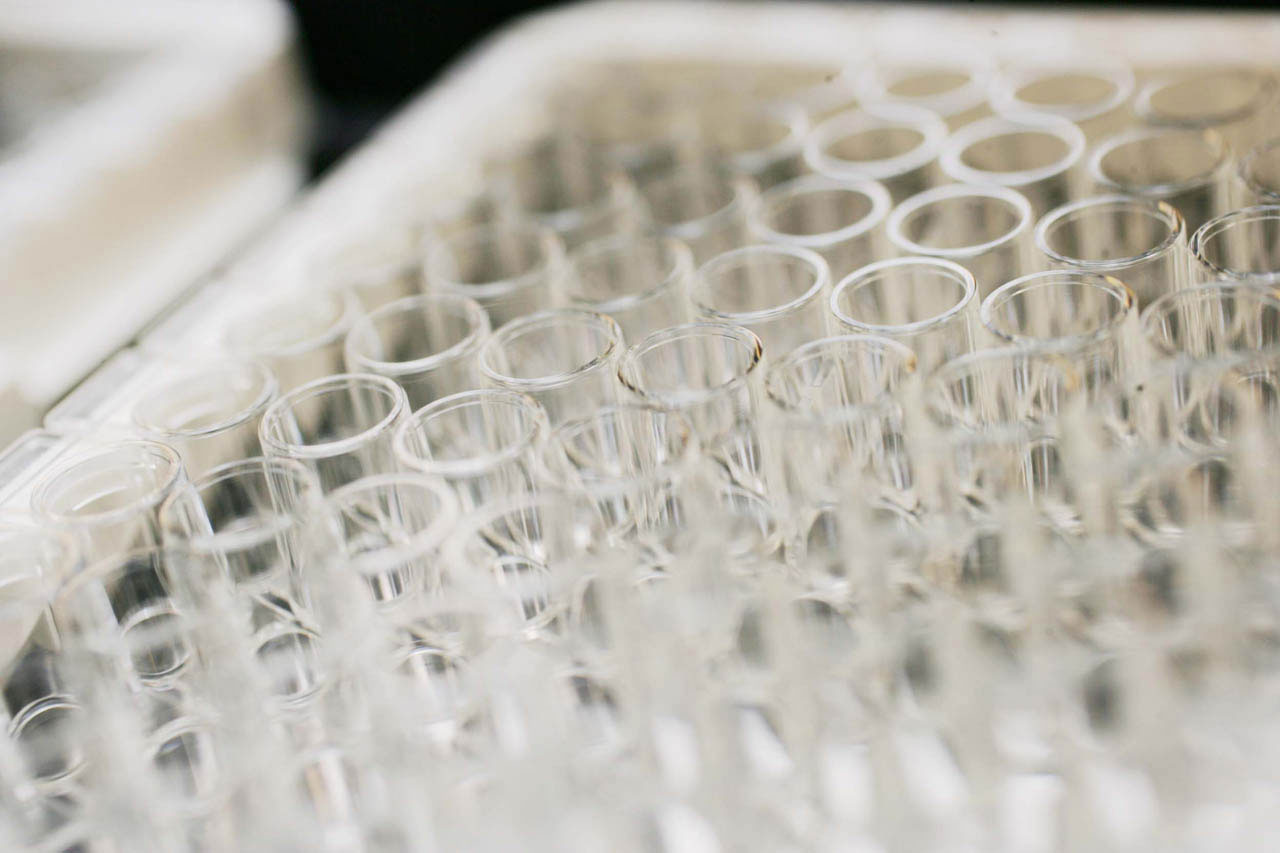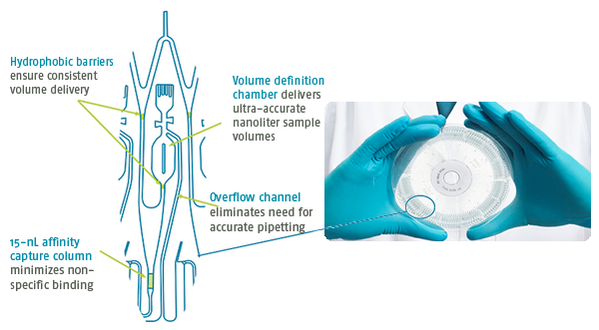Calprotectin is a 36 kilodalton calcium and zinc-binding protein, produced by polymorphonuclear neutrophilic granulocytes, monocytes, and squamous epithelial cells except those in normal skin. The concentration of Calprotectin measured in stools is a non-invasive and objective marker; it can be used to determine disease activity and response to treatment of IBD, and to tell when a true remission has been achieved. Calprotectin can also be analyzed in serum and plasma samples, and high Calprotectin levels have been found in patients with bacterial infections, sepsis, and inflammatory conditions like rheumatoid arthritis (RA) and Systemic Lupus Erythematosus (SLE).
It is recommended to set up Calprotectin Flexi assays as 3-step sandwich assays with the included antibodies in their indicated functions as capture and detector to ensure optimal specificity for detection of native Calprotectin in stool extract or plasma samples. The recommended assay design has also been used in other diagnostic tests developed by Calpro AS (a member of the Svar Life Science group of companies). A recommended Gyrolab® assay protocol is described below, allowing for automated Calprotectin quantification using Svar Life Science’s proprietary antibodies.

NOTE: These products have been discontinued. Please contact us for replacement products.
Calprotectin Flexi Capture antibody
Calprotectin Flexi Detection antibody
Calprotectin Flexi Diluent
Calprotectin Flexi Calibrator stock
Calprotectin Flexi Low control
Calprotectin Flexi High control
This Calprotectin assay and the Calprotectin Flexi reagents can be used to detect Calprotectin in fecal extracts and/or EDTA plasma samples. This application note and the Calprotectin Flexi reagents comprise the essential requirements to independently set up, customize and optimize the Calprotectin assay on the Gyrolab® automated platform (Gyros Protein Technologies) or another platform of your choice. The Calprotectin Flexi reagents may also be used for other applications of your choice.
Together with Gyros Protein Technologies, Svar Life Science has developed an automated immunoassay for the specific detection of Calprotectin in fecal extracts and/or EDTA plasma samples.
A new application for the Calprotectin assay to be used on the Gyrolab® automated platform from Gyros Protein Technologies has been established with an assay setup using the Calprotectin Flexi reagents comprise the essential requirements to independently set up, customize and optimize the Calprotectin assay. The assay is a high performance nanoliter-scale sandwich immunoassay approach offering the following advantages:
Using an affinity flow-through format, Gyrolab technology simplifies assay workflows by eliminating incubations and shortening run times.
The proprietary CD technology, engineered with highly reproducible nanoliter microfluidics, integrates with Gyrolab platforms, which automate immunoassays with parallel processing using laser-induced fluorescence detection. This is possible through precise, automated control of centrifugal and capillary forces which steer liquid flow through nanoliter-scale microfluidic structures contained within the CD in which the assay workflow is automated.

Read more about the Gyrolab Technology on www.gyrosproteintechnologies.com
Together with Gyros Protein Technologies, Svar Life Science has developed an automated immunoassay for the specific detection of Calprotectin in fecal extracts and/or EDTA plasma samples.
A new application for the Calprotectin assay to be used on the Gyrolab® automated platform from Gyros Protein Technologies has been established with an assay setup using the Calprotectin Flexi reagents comprise the essential requirements to independently set up, customize and optimize the Calprotectin assay. The assay is a high performance nanoliter-scale sandwich immunoassay approach offering the following advantages:
Using an affinity flow-through format, Gyrolab technology simplifies assay workflows by eliminating incubations and shortening run times.
The proprietary CD technology, engineered with highly reproducible nanoliter microfluidics, integrates with Gyrolab platforms, which automate immunoassays with parallel processing using laser-induced fluorescence detection. This is possible through precise, automated control of centrifugal and capillary forces which steer liquid flow through nanoliter-scale microfluidic structures contained within the CD in which the assay workflow is automated.

Read more about the Gyrolab Technology on www.gyrosproteintechnologies.com
Learn more about distant monitoring and e-Health, a great tool for patients to remain prolonged periods in remission